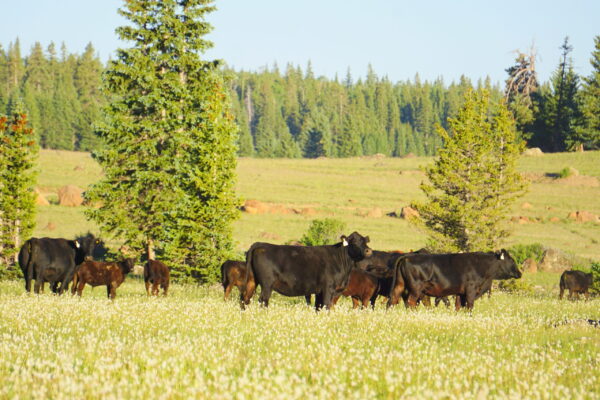Late in this year’s legislative session, a bill passed the Utah House and Senate that would make grazing a state right in Utah.
The bill, designated HB-363 and sponsored by Rep. Carl Albrecht, would not change federal law. It would, however, give Utah a “tool” in negotiations over use of public lands, particularly on the Grand Staircase.
According to HB-363, if ranchers a) own a permit, b) graze the land with sustained yield, c) demonstrate the land is chiefly valuable for grazing and d) begin grazing before a federal agency decides to withdraw the land from use, they have a “valid existing right” to graze.
Is Grazing a Right or a Privilege?
The language in the bill adds to a fraught debate over whether grazing is a right or a privilege.
Proponents of this bill believe that because ranchers pay for the land they use, buy and sell it, and manage the use of it for generations to come, they have an inherent right to what they do with it. This is what is considered a preference right under the Taylor Grazing Act of 1934.
Commissioner Tammy Pearson of Beaver County spoke at the House committee hearing on behalf of her county, which is 87% public land. “We’ve bought and paid for those allotments and the grazing fees that we pay annually, and it’s a huge economy,” said Pearson. “And it’s literally the only thing that’s been sustainable in rural Utah.”
Garfield County is 93% public lands; Wayne, 97%; and Piute, 74%. These are all counties Tammy Pearson would call “public lands counties,” which rely heavily on ranching for their income.
Can Utah Grant This Right?
Some argue, though, that grazing has always been nothing but a privilege granted by the federal government. And, some argue, Utah does not have the authority to grant this right.
Such was the opinion of Laura Welp, the Western Watersheds Project’s ecosystems specialist.
“Ranchers have grazing permits that allow them to exercise the privilege of grazing on federal land, subject to terms and conditions. But it does not convey a right to graze,” she told St. George News.
“That decision is up to the land management agency, which is charged with maintaining land health on behalf of the American people,” she continued. “If the legislature wants to involve itself in grazing management, it should fund the retirement and restoration of those allotments that are failing land health standards due to grazing.”
The bill is set to take effect May 1, 2024. It awaits a signature from Governor Spencer Cox.
– The Byway
Feature image caption: Cows graze on summer range near a spring on Griffin Top west of Escalante, July 15, 2023. Courtesy of AJ Martel, The Byway.

